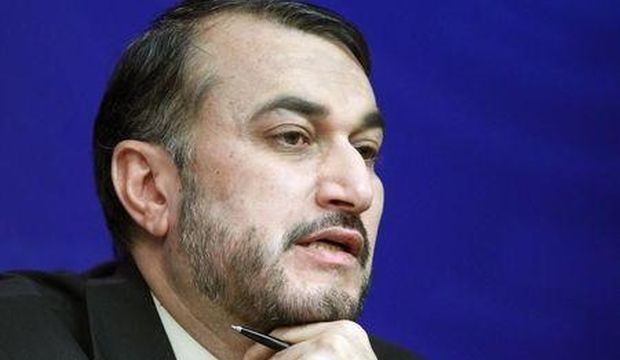Coinciding with Iranian Foreign Minister Mohammad Javad Zarif’s visit to Kuwait on Sunday, Iran launched a clearly organized media campaign aimed at other countries in the region, whether friend or foe. Some of this was carried out by Iran’s allies—Hassan Nasrallah, Bashar Al-Assad, Nuri Al-Maliki—but the most interesting comments came from Tehran itself, and specifically its Deputy Foreign Minister Hossein Amir-Abdollahian.
In comments carried by the official Islamic Republic News Agency (IRNA), Abdollahian presented Tehran’s reading of the regional situation following its nuclear deal with world powers, focusing especially on Iran’s stance towards Saudi Arabia. Abdollahian’s comments contained numerous errors and he spoke in triumphant tones regarding the reality of the region following the deal—perhaps to gloss over the numerous concessions Iran had to make in order to seal the agreement. The deputy foreign minister also repeated recent comments made by Iran’s Supreme Leader Ayatollah Ali Khamenei that Tehran supports “oppressed peoples” throughout the region via Hezbollah, Hamas, Palestinian Islamic Jihad, and Bashar Al-Assad. He also spoke of how, allegedly, Saudi Arabia had attempted to forestall the nuclear deal.
“The security of the region, including that of Saudi Arabia, is part of Iran’s security,” Abdollahian said. “However, the policies of some extreme voices inside Saudi Arabia today are pushing the region towards conflict and shaking its security and stability. Proof of this is Saudi Arabia’s behavior in Bahrain and Yemen and its negative role in several of the region’s important issues, such as in Iraq, Syria, and Lebanon. For this reason, I can confirm that we welcome dialogue with Saudi Arabia and we hope that it will in the nearest time possible dispense with its hawkish policies.”
A question arises immediately after reading these comments: Since when, Mr. Abdollahian, has Saudi Arabia had hawks, as you put it, or even doves? The facts show that since the 1979 Khomeinist revolution Saudi Arabia’s policies towards Iran have been very clear and decisive. All the Kingdom’s monarchs since 1979 have tried to assume good intentions on Tehran’s part, while at the same time taking a decisive stance regarding national security and the non-interference in the affairs of other countries, whether coming from Iran or anyone else. It is well-known that Saudi Arabia does not have, and has never had, hawks or doves in its administration. What it does have is a state, solid and proud, manned by accomplished statesmen, and possessing a clear, rational approach to domestic and international affairs. Unlike Iran, Saudi Arabia has never recruited sectarian militias in Iraq, Lebanon, or Yemen. Unlike Iran, Saudi Arabia does not support a criminal who continues to butcher his own people in Syria. Neither is Saudi Arabia a state sponsor of terrorism, as Iran is.
Moreover, Saudi Arabia did not support a coup in Yemen against a legitimate and internationally recognized president; instead it helped bring about a UN Security Council resolution, supported by the international community, to protect political legitimacy in the country. As for Bahrain, Saudi Arabia’s intervention there is motivated solely by the desire to protect the country and its security, something it also did when Saddam Hussein invaded Kuwait in 1990. Iran, meanwhile, seeks to undermine the security of numerous countries around the region. Saudi Arabia has not responded to Iranian-sponsored terror attacks with similar attacks on Iranian soil. It has not funded Iranian operatives or terrorists, or fanned the flames of sectarianism in Iran. Nor does Saudi Arabia host and protect members of Al-Qaeda.
Iran does not respect its agreements. It has not abided by the terms of what was known as the Naif–Rouhani agreement, nor an official security agreement signed with Riyadh in 2001. So, how, after all this, can Mr. Abdollahian say with a straight face that Saudi Arabia’s security is part of Iran’s security? Or that Saudi Arabia has hawks and doves? And, may I ask, what could possibly be the point, after all these recent comments, for Foreign Minister Zarif’s visits to Kuwait, Qatar, and Iraq, especially considering the recent news coming out of Bahrain regarding an Iranian-trained cell attempting to carry out terror attacks in the country?
It is clear that Iran is not just good at spinning rugs; it can spin a fine, fantastical tale too.
